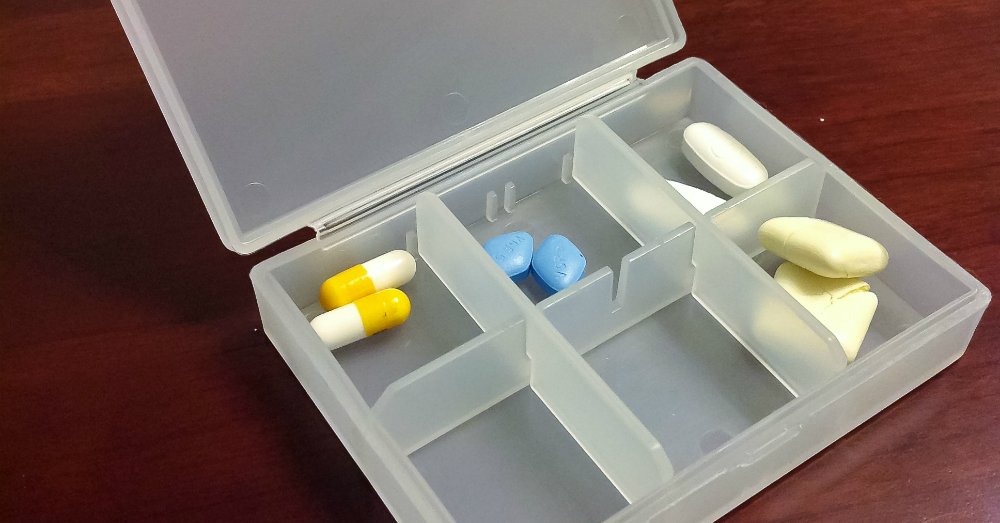Lubiprostone
- 1. Introduction to Lubiprostone
- 2. Composition and Properties of Lubiprostone
- 3. Mechanism of Action: How Lubiprostone Works
- 4. Primary Uses of Lubiprostone
- 5. Off-Label Applications of Lubiprostone
- 6. Common Side Effects and Adverse Reactions
- 7. Dosage and Administration Guidelines
- 8. Lubiprostone in Special Populations
- 9. Drug Interactions and Contraindications
- 10. Precautions and Warnings
- 11. Storage and Handling of Lubiprostone
- 12. Managing Overdosage Situations
1. Introduction to Lubiprostone
1.1. Overview of Lubiprostone
Lubiprostone, a medication that activates chloride channels, represents a significant breakthrough in gastrointestinal therapy. Its unique molecular structure helps promote chloride and water secretion, ultimately relieving constipation and improving movement. This medicine is not practical but stands out for its innovative approach, to tackling gastrointestinal discomfort.
1.2. Historical Background and Development
Lubiprostone was created through research and development to help alleviate chronic gastrointestinal problems. It went through testing and safety evaluations before being approved by regulatory authorities. This approval marked a milestone in the treatment of gastrointestinal disorders.
1.3. Understanding Its Place in Modern Medicine
Lubiprostone plays a role in today's field of therapy. It is highly effective in treating constipation and IBS C, making it an essential tool in gastroenterology. What sets this medication apart from laxatives is its unique way of working, which positions it as a fundamental component in managing specific digestive disorders.
2. Composition and Properties of Lubiprostone
2.1. Chemical Structure and Characteristics
Lubiprostone possesses a chemical composition featuring a complex fatty acid derived from prostaglandin E1. This intricate molecular structure plays a role in its powerful pharmacological impacts, allowing for the targeted and effective activation of chloride channels.

2.2. Pharmacological Profile
The drug's effects on the body are characterized by its ability to specifically target and interact with type 2 chloride channels in the tract. This interaction leads to a boost in the production of fluids, which helps promote regular bowel movements and relieve constipation symptoms without affecting the balance of electrolytes in the bloodstream.
3. Mechanism of Action: How Lubiprostone Works
3.1. Detailed Explanation of Its Pharmacodynamics
- Lubiprostone works by activating chloride channels called CIC 2 in the lining of the intestines.
- This activation causes an increased secretion of fluid in chloride into the intestine.
- The additional fluid in the intestine helps improve movement. It makes it more accessible for stools to pass through.
3.2. Lubiprostone's Impact on Intestinal and Stomach Functions
Lubiprostone's effects go beyond relieving constipation; it also positively influences gastric emptying and the time it takes for food to move through the intestines. These improvements in function contribute to its effectiveness in managing constipation and IBS C.
4. Primary Uses of Lubiprostone
4.1. FDA-Approved Indications
Lubiprostone is a medication that is primarily prescribed to treat idiopathic constipation (CIC) and irritable bowel syndrome with constipation (IBS-C) 1. The FDA has approved Lubiprostone for these conditions, which highlights its significance in practice and its proven safety record 2.
Here are the HTML links to the references for the above content: 1: DrugBank Online 2: FDA
4.2. Efficacy in Treating Chronic Constipation
Lubiprostone is highly effective in patients suffering from constipation. It improves the frequency and consistency of bowel movements, improving individuals' quality of life.
4.3. Role in Managing Irritable Bowel Syndrome
For people dealing with IBS C, Lubiprostone provides relief for symptoms by targeting the root cause of constipation in the syndrome. This helps improve the functioning of the gastrointestinal system.
5. Off-Label Applications of Lubiprostone
5.1. Exploring Non-FDA Approved Uses
Lubiprostone is primarily prescribed to treat idiopathic constipation (CIC) and irritable bowel syndrome with constipation (IBS-C) 1. However, it is also being studied for its use in other conditions such as induced constipation and various gastrointestinal disorders, where its unique mechanism of action could be advantageous 1.
Here are the HTML links to the references for the above content: 1: DrugBank Online
5.2. Emerging Research and Clinical Findings
Ongoing research and emerging clinical studies are helping us understand the potential benefits of Lubiprostone in different gastrointestinal disorders. These investigations can potentially open opportunities for therapeutic applications and broader usage in clinical settings.
6. Common Side Effects and Adverse Reactions
6.1. Frequency and Severity of Side Effects
Lubiprostone may cause some side effects, like nausea, diarrhea, and headaches. Although these effects are typically not severe, their occurrence and intensity can differ from patient to patient. It's essential to keep a close watch on them.

6.2. Managing Common Adverse Reactions
Managing reactions effectively includes adjusting the dosage and providing symptomatic treatment. If severe side effects occur, it may be necessary to stop taking the medication.
7. Dosage and Administration Guidelines
7.1. Recommended Dosage for Different Conditions
The appropriate amount of Lubiprostone to take depends on the specific condition being treated. In the case of CIC, taking 24 mcg twice a day is typically recommended, whereas, for IBS C, a lower dosage may be more suitable.
7.2. Adjustments for Specific Patient Populations
Special populations, such as patients or individuals with liver problems, may require adjustments to their dosage to reduce the likelihood of experiencing adverse effects.
7.3. Administration Techniques and Best Practices
To achieve the results, it is recommended to consume Lubiprostone along with a meal and some water. Following the instructions for taking it can significantly improve its therapeutic effects.
8. Lubiprostone in Special Populations
8.1. Administration to the Elderly
When giving Lubiprostone to older patients, it is crucial to consider the health condition and possible interactions with other medications.
8.2. Use in Pregnant Women and Nursing Mothers
Although no information is available regarding Lubiprostone's safety during pregnancy and breastfeeding, it is advisable to make decisions about its usage in these situations after carefully assessing the potential risks and benefits involved.
8.3. Considerations for Pediatric Patients
The use of Lubiprostone, in children has not been thoroughly studied to determine its safety and effectiveness. Therefore it is essential to proceed with caution and explore alternative treatment options.
9. Drug Interactions and Contraindications
9.1. Identifying Potential Drug Interactions
In order to provide the best possible care for patients, it is essential to understand how Lubiprostone interacts with other medications. It is crucial to examine the medicines the patient is currently taking to identify any potential interactions in terms of how they are absorbed, distributed, metabolized, and excreted. It's important to consider how using laxatives, anticholinergic agents, and specific pain medications may impact the effectiveness of Lubiprostone. This means that close monitoring and adjustments in dosage may be necessary to ensure therapeutic outcomes.
9.2. Contraindications and When to Avoid Lubiprostone
Lubiprostone should not be used in patients with a known allergy to the medication or its ingredients. It is also essential to exercise caution when using it in individuals with conditions like bowel obstruction, diarrhea, or gallbladder disease. Awareness of these contraindications is crucial to prevent any reactions and ensure the patient's safety. It is advisable to explore alternative treatment options that can help alleviate gastrointestinal discomfort.
10. Precautions and Warnings
10.1. Important Safety Information
Lubiprostone is a medication, but following safety guidelines to minimize potential risks is essential. Patients should be informed about the possibility of feeling nauseous, especially if they take it without eating. It's also crucial to educate patients about the symptoms of imbalance or dehydration that could result from excessive diarrhea. Providing patients with this information is essential to avoid complications and ensure treatment outcomes.
10.2. Precautions in Patients with Existing Health Conditions
It is essential to exercise caution when prescribing Lubiprostone to patients who already have existing health conditions. These conditions may include liver problems, kidney dysfunction, and heart disorders. When dealing with patients, it is crucial to evaluate the balance between risks and benefits thoroughly. Regular monitoring and potential adjustments to the dosage are vital in customizing the treatment according to each patient's requirements and reducing the chances of any unwanted side effects.
11. Storage and Handling of Lubiprostone
11.1. Proper Storage Conditions
Lubiprostone stability and effectiveness depend on following the recommended storage guidelines. It is best to store the medication at room temperature, away from direct sunlight and moisture. This helps maintain its qualities over time. Patients should be advised to store the medication in its packaging to avoid contamination or deterioration.

11.2. Handling Precautions and Safety Measures
When dealing with Lubiprostone, it's essential to keep it safe. Patients should be advised not to touch the capsules with their hands and to take them right after removing them from the packaging. It's also crucial to inform patients about how to dispose of unused or expired medication to prevent accidental ingestion or harm to the environment.
12. Managing Overdosage Situations
12.1. Recognizing Symptoms of Overdosage
Recognizing symptoms promptly is crucial in cases of Lubiprostone overdosage. Symptoms to watch out for may include diarrhea, dehydration, and electrolyte imbalance. Identifying these signs quickly allows for intervention and reduces the chances of experiencing severe complications.
12.2. Immediate Actions and Treatment Protocols
When concerned about taking too much of Lubiprostone, seeking medical help is crucial. The first thing to do is to stop taking Lubiprostone and check your signs. Providing care like replacing fluids and electrolytes is essential for treatment. Sometimes, the patient might need to be admitted to the hospital for closer monitoring and care. Taking these steps is essential as they are vital for the patient's recovery and preventing any long-term effects.






















